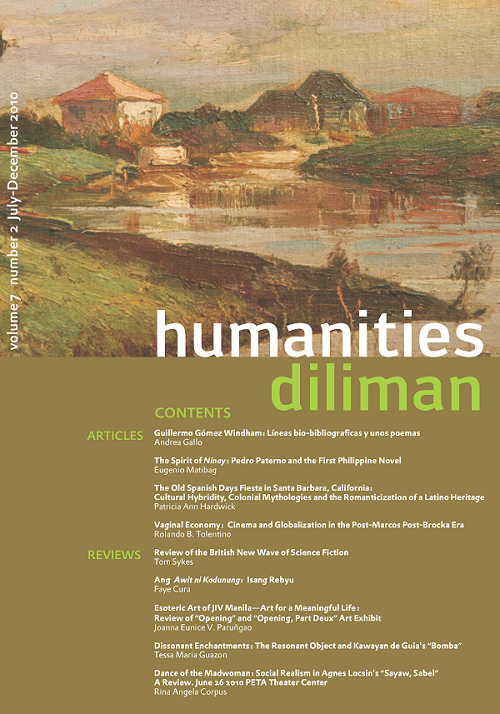The Old Spanish Days Fiesta in Santa Barbara, California: Cultural Hybridity, Colonial Mythologies and the Romanticization of a Latino Heritage
Abstract
Old Spanish Days Fiesta is a tradition that was invented in 1924 by civic leaders in Santa Barbara, California to celebrate the periods of the Spanish settlement and the Mexican rule of California and to promote local tourism. This article will trace the historical narrative of the complex cultural and ethnic composition of Santa Barbara before interrogating the colonial and post-colonial histories of the Californian past that are so often romanticized during the events of the Santa Barbara Fiesta. Subsequent to the American appropriation of California, Anglo-American ideas of race and identity were imposed upon Latino Californians. This development led many Spanish-speaking Californians to cultivate a Spanish identity and de-emphasize their Mexican, Native American, or African ancestry as they attempted to maintain their land grants and social prominence under American rule. Official versions of Santa Barbara’s past promoted by Santa Barbara’s civic leaders and Old Spanish Days Fiesta literature tend to privilege romanticized historical interpretations that submerge and absorb California’s hybrid ethnic and cultural histories into an idealized Spanish colonial narrative. This article explores how many individual Santa Barbara Fiesteros choose to engage, negotiate, and/or subvert this simplified official civic narrative of Santa Barbara’s Spanish past through their own personal performances during the Fiesta. An analysis of how local festival participants envision their performance in the context of the festival allows outsiders to have a glimpse into how they create and embody their own personal and nuanced understandings of history during the Fiesta.
Published
2010-12-21
Issue
Section
Articles
Keywords
California, anthology, folklore, performance, dance, hybridity


